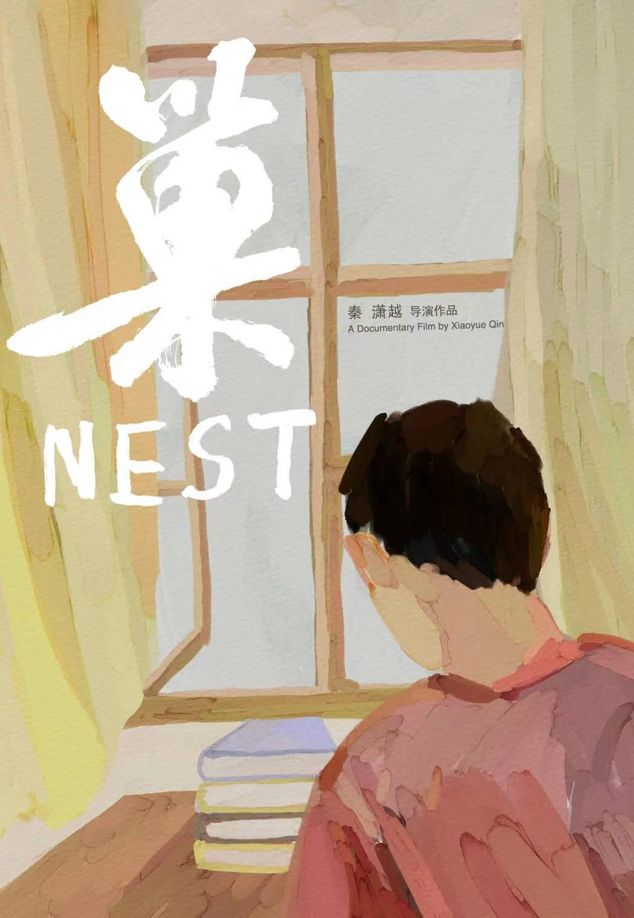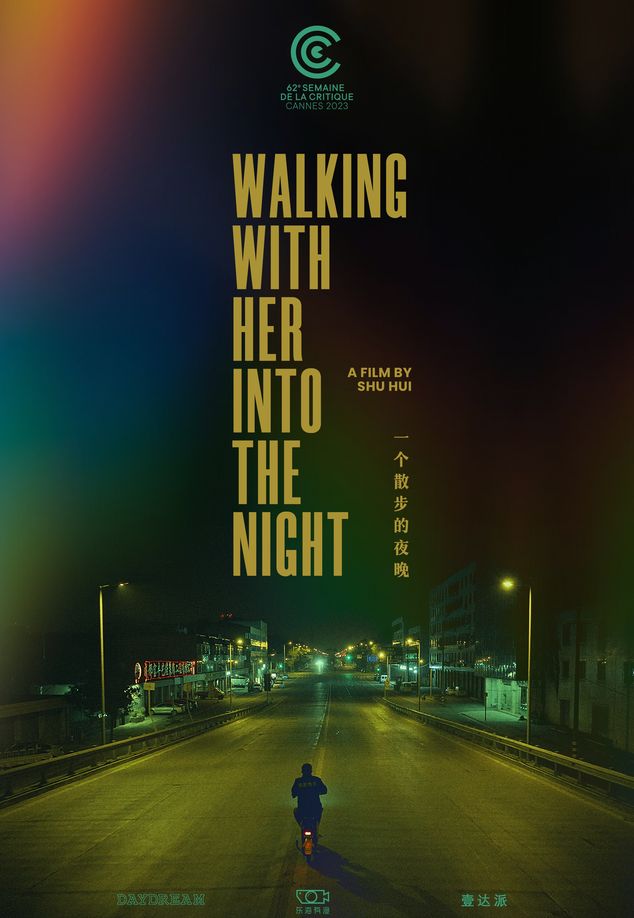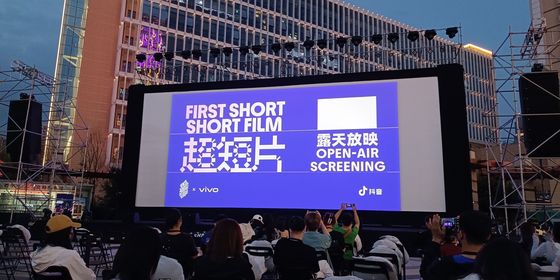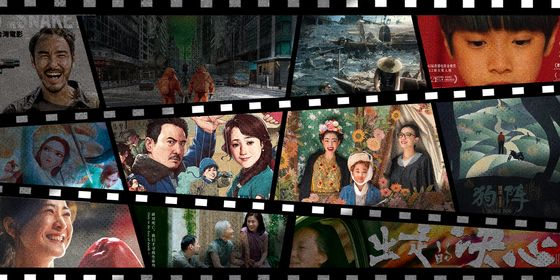These movies won over audiences and judges at China’s biggest movie festival for young filmmakers
For the past 12 years, the city of Xining in western China’s Qinghai province has welcomed young directors, scriptwriters, and movie lovers each July to bask in the best the country’s young filmmakers have to offer. The FIRST International Film Festival, which prides itself on offering a platform for youth in China’s film industry, not only screens directors’ debuts and early works but also provides them the opportunity to meet investors from the industry. B for Busy, a film that made 200 million yuan at the box office after its general release in 2021, debuted at FIRST in 2020.
After being closed to the public in 2022, the festival opened screenings once again for one and all last week. Over 800 entries from all over the world were submitted to the festival this year, with less than 50—ranging from full-length features to short films, documentaries to animations—making it to the final round of the competition.
Here are five films that won awards at this year’s official competition. Look out for them (hopefully) coming to cinemas soon.
Galaxy Writer
This surprising and refreshing comedy-drama took home the Best Screenplay award and Grand Jury Prize (one of the three most prestigious awards at the festival alongside Best Director and Best Feature Film).
Inspired by the real-life experiences of the movie’s three creators, the story centers around two young screenwriters striving to succeed in the film industry in Beijing. Starring famous comedian Song Muzi and actor He Wenjun, the film showcases the struggles of young people in big cities and explores their shared anxiety over whether to pursue their artistic passion or cave to what the market (and society) desires.
The humorous and romantic script of Galaxy Writer, the debut film of directors Shan Dandan and Li Kuo, seemed to resonate with audiences, especially young viewers who were also just beginning their careers in creative industries.
Over a running time of just 106 minutes, the directors not only reveal the realities of China’s film industry but also share their worries about the future of content creation, particularly the disruptive impact of artificial intelligence. Will we be replaced by AI one day? Will we be watching films solely created by AI? Shan and Li tap into the zeitgeist of the industry by exploring these questions.
During a Q&A session after the movie’s screening, director Shan claimed her only goal was to make a funny film—well, she succeeded with that too, with laughs aplenty throughout.
Production of the film only began in July 2022, and the directors now hope to find investors to bring the movie to major theaters. If it makes it, Galaxy Writer could replicate the success of B for Busy.
Fate of the Moonlight
The theater was filled with the sound of sniffling at the end of this three-hour epic. Despite the marathon running time, director Qin Tian’s debut film kept the audience captivated throughout this story of single mother Xia Chan. Fate of the Moonlight won the Best Narrative Feature award and a special mention in the FIRST Frame section, a category dedicated to the portrayal of women on screen.
The story begins on a hot summer’s day in bustling Chengdu, Sichuan province. Xia is pregnant when she finds out that her boyfriend, the baby’s father, is a con artist. Emotionally broken, Xia dreams of jumping off from the top of her run-down apartment building but the heartbeat of her baby convinces her to live on. Fast forward a few years, Xia has made a life for her daughter and herself in the city, even though her lowly job at a karaoke bar leaves her social status at rock bottom.
Soon though, another dramatic turn sees Xia take care of her 12-year-old niece when her mother (Xia’s twin sister) dies. Left supporting two children on a single income, Xia’s life is further complicated when her mother visits and brings up more childhood trauma.
Qin was the only male director in this year’s FIRST Frame category, but he succeeds in portraying the conflict between three generations of women in a peaceful, restrained, and respectful way. In fact, the festival committee found his work so convincing that they even mistakenly referred to him as Mrs. Qin Tian on their official selection certificate.
Qin took the mistake as a compliment, and wrote in his statement alongside the film: “[Women] are at the center of this world, but also at the periphery.” Fate tries to throw the spotlight on an often-overlooked group of women in Chinese society.
This Woman
The FIRST Frame section of the festival was created in 2021, in collaboration with Chanel, to encourage the representation of female-centric themes in films. This Woman, this year’s winner of the FIRST Frame award, does this by exploring the role of women in contemporary Chinese society.
The mockumentary follows 35-year-old Beibei who loses her job of the past 10 years and returns to her hometown upon the outbreak of Covid-19. The camera follows her journey home and her attempts to navigate relationships with her parents and child.
Director Alan Zhang decided to make the film back in 2021 when her own child was two years old and Covid-19 raged across the world. The film is based on the real-life story of her friend, another film enthusiast. The film intentionally blurs the line between fiction and reality with conversational dialogue and interviews, making the characters and societal norms it addresses convincing and poignant.
Nest
It took Qin Xiaoyue six years to finish Nest, her first long-form documentary. Her reward for that toil was the Best Documentary prize at this year’s FIRST.
Fang Junrui, the protagonist of the movie, approached Qin after a screening of her short film Being in the World in 2016 and invited her to document his life. The 30-year-old Shanghai local had always dreamed of becoming an expert in relic restoration. However, as he fails to land a job in this field, Fang instead finds himself a single man living with his parents in a tiny apartment and working as a security guard at a hospital.
What Qin finds inside the family home is a combustible, sometimes violent, relationship between Fang and his parents. Her camera documents the family conflict and serves as an outlet for Fang to complain about the unfairness of life and even question his faith. However, after meeting a friend from church, Fang starts to see a glimmer of hope in his grim existence.
Qin wrote in her notes on the film that she hopes the documentary can be a mirror to remind people that it’s easy to become obsessive like Fang, who sinks into self-pity and feels the whole world owes him something.
Walking With Her into the Night
On a quiet evening, a young man and woman talk and stroll down an empty street. The catch: It’s the last night before the end of the world. This is the simple but powerful premise of Walking With Her into the Night, winner of the Best Short Film award at this year’s FIRST festival.
In just 30 minutes, director Shu Hui skillfully depicts the dynamic relationship between two characters: a “goddess” and her admirer. Their conversation is mostly trivial, while the impending apocalypse is only hinted at within the conversation. Through the use of Sichuan dialect, discussions of some heavier subjects somehow become more lighthearted.
Shu, a Sichuan local, has been working as a video editor since graduating from college, but has already had two finalists at FIRST—the first was another short film, The Spring Breeze Kisses Me, in 2022.
Walking With Her was filmed in just four days right after China’s Covid restrictions were lifted in late 2022. Even with limited time and resources, the short film still manages to tell a compelling romantic story without falling into cliché.
Before screening at FIRST, the film was even nominated for the short film category at Cannes Film Festival in May.
All images from Douban

















